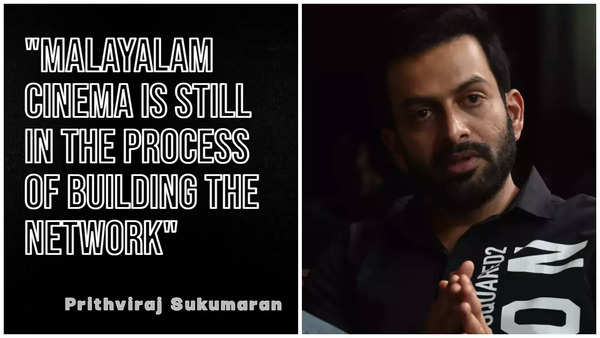
The Revival of Malayalam Cinema: From Despair to Triumph
The Malayalam film industry, once mired in a dark phase, has made a strong comeback in 2024. Known for its innovative storytelling and unique narratives, the industry faced significant challenges in the 2000s and post-COVID eras. However, the recent resurgence of back-to-back hits such as ‘Bramayugam’, ‘Manjummel Boys’, ‘Premalu’, and many others has reignited hope and excitement among filmmakers and audiences alike.
(Picture Courtesy: Facebook)
Kamal Haasan on Malayalam Cinema’s Dark Phase
Tamil superstar Kamal Haasan recently shed light on the dark phase of Malayalam cinema during a roundtable discussion. Kamal Haasan, a great admirer and product of the Malayalam industry, lamented how it lost its essence during the 2000s while trying to compete with Tamil and Telugu films. In the current scenario, the Tamil superstar said that the Malayalam film industry now provides good-quality content for audiences. He expressed relief and gratitude for the resurgence of quality content, attributing part of this revival to the influence of OTT platforms.
The 2000s: A Struggle for Identity
The 2000s were particularly challenging for Malayalam cinema. MT Vasudevan Nair, in his screenplay book, described how the industry was known outside Kerala primarily for its soft porn movies. The success of a few films led to a slew of imitative productions, diluting the quality and creativity that once defined the industry. Even the superstars of the era struggled to make a significant impact at the box office, as the majority of their films appeared to be repetitively boring. For example, when a movie like ‘Narasimham’ turns out to be a hit, the filmmakers try to rehash the same storytelling style with the same actors for their next 5 or 6 films, ‘Praja’, ‘Chathurangam’, and many more are supreme examples of this.

(Picture Courtesy: Facebook)
The Post-COVID Slump (2020-2023)
Mirroring the same 2000 crisis, the Malayalam film industry faced struggles after the COVID phase. The industry faced a similar downturn from 2020 to 2023, with only a handful of superhit films like ‘Kannur Squad,’ ‘2018,’ ‘Romancham,’ and ‘RDX’ turning profits out of the 209 films released in 2023. Many films from this period failed to attract audiences to theaters, being better suited for OTT viewing rather than the big screen.
No watchers for Malayalam cinema
‘Aedan,’ ‘Thirike,’ ‘Ice Orathi,’ ‘Adbhutham,’ ‘Wolf’—these are just a few of the many lesser-known Malayalam films released in 2021. Post-COVID, Malayalam audiences became more selective, influenced by their exposure to a variety of foreign-language movies via OTT platforms. This shift in interests led to many Malayalam films from 2020 to 2023 being deemed more suitable for OTT viewing than the big screen.

(Picture Courtesy: Facebook)
The 2024 Resurrection
The turning point came in 2024 with a string of successful releases like ‘Manjummel Boys,’ ‘Bramayugam,’ ‘Aavesham,’ and ‘Premalu.’ Each of these films offered something unique, catering to a variety of genres and demonstrating the industry’s versatility. Mammootty’s ‘Bramayugam’ set the tone for this resurgence, followed by other hits that captivated audiences both in Kerala and beyond.

(Picture Courtesy: Facebook)
Distribution and Global Reach: Prithviraj Sukumaran
Prithviraj Sukumaran, during the promotions of ‘Aadujeevitham,’ emphasized the importance of distribution systems in the industry’s revival. “We are still not there fully. Malayalam cinema is still in the process of building the network where we can get our films exhibited around the world properly and also in a way that these films deserve to be shown.” He noted that the success of ‘Lucifer’ in 2018 revealed the global potential for Malayalam cinema. “There are film-loving people all over the world who would love to watch our content if it was accessible to them.”
Malayalam cinema has been ‘discovered’ by the Indian audience outside Kerala, says veteran journalist Latha Srinivasan
Veteran journalist Latha Srinivasan, in an exclusive chat with us, said, “Malayalam cinema has been ‘discovered’ by the Indian audience outside Kerala thanks to the COVID pandemic and OTT platforms. The Malayalam film industry has always been making strong, content-driven films, but it’s only in the last few years that the pan-Indian audience has discovered this. During the pandemic, the Malayalam film industry released many new films on OTT, like The Great Indian Kitchen, Minnal Murali, Malik, Drishyam 2, and Forensic. All these films turned out to be highly viewed on OTT platforms, and now this demand has spilled over into theaters.”
She further said, “Malayalam filmmakers make unique, realistic content that is culturally rooted and primarily appeals to Malayalam audiences. This is what the audience outside Kerala finds tremendously appealing—it’s different from the commercial masala fare that they are constantly fed by Bollywood. So Malayalam cinema has not really changed; it is the taste of the Indian audience that has changed, and for the better.”
Guruvayoor Ambalanadayil | Song – K For Krishna (Lyrical)
Talking about the distribution sector in the Malayalam industry, the veteran journalist said, “The Malayalam industry always had a poor distribution channel; now, post-pandemic, they have started to consciously collaborate with distributors outside the state to cater to the Indian audience as the market for their films has really opened up. Prithviraj’s ‘The Goat Life’ did well. The distribution sector is improving; are they now focusing on pan-India and strengthening the distribution sector?”
All thanks to impactful and relatable storytelling. Trade expert Ramesh Bala
In an exclusive conversation with us, trade expert Ramesh Bala said, “Malayalam cinema has stuck to its core strength and never followed pan-India trends like ‘KGF’, ‘RRR’, and others. They didn’t take the pan-India route that other industries took. Instead, they stuck to their strengths, which are their writing, acting, and making movies on their own terms. And as a result, they have succeeded not only within the state but also outside it. Movies like ‘Manjummel Boys’, ‘Premalu’, ‘Aavesham’, and ‘Bramayugam’ have all done well. They are moving from local to global, just like Korean movies are doing. They stuck to their guns and never made a pan-Indian masala movie or something.”
He further added, “After the COVID pandemic, others became familiar with Malayalam content, all thanks to OTT. They also started doing their marketing better through social media and other channels. Nowadays, people are looking for movies to watch every Friday, even if other language movies are also released on the same day. The audience is taking a look at them.”
Regarding the big box office success strategy employed by the Malayalam film industry this year, Ramesh Bala said, “Without relying too much on unrealistic storytelling, Malayalam movies are more grounded and relatable to a majority of audiences. Thanks to their powerful writing. A movie like ‘Premalu’ can be relatable to every kind of audience, regardless of the language. So, with their strong writing, Malayalam movies don’t need big-budget movies to impress their audiences. This powerful writing is surely the main strategy of the Malayalam industry in achieving box office success.”

(Picture Courtesy: Facebook)
Filmmakers cracking the code: Director Jithin Lal
Tovino’s ‘Ajayante Randam Moshanam’ director Jithin Lal exclusively explained how filmmakers have adapted to changing audience preferences. He noted that post-COVID, audiences seek a proper theatrical experience with engaging content. Talking to us, he said, “Post-COVID, audiences’ tastes and preferences have changed drastically. The majority of films released during the dark phase of Malayalam cinema were planned during the COVID period. Now, Malayalam audiences seek a proper theatrical experience that provides genuine entertainment. They can discern which films to watch in theaters. Films like ‘Manjummel Boys,’ ‘Bramayugam,’ and ‘Premalu’ exemplify the type of content that connects with audiences. Filmmakers have now cracked the code on the type of content and storytelling styles that audiences prefer.”
Reacting to Mammootty’s recent statement about the improvement in audience quality leading to better Malayalam movies, the director of ‘Ajayante Randam Moshanam’ commented, “For me, cinema is a source of pure entertainment. Audiences want their money’s worth and to enjoy a 2-hour movie on the big screen. They seek entertainment. Even when a film’s trailer hits, they judge whether that movie should be watched in theaters or on OTT.” He added, “The same movie can have likes and dislikes from the audience. Normal audiences don’t dig deeper into a movie; they just want a pure dose of entertainment with their favorite actors on screen.”

(Picture Courtesy: Facebook)
Audience preferences changed after the COVID phase, says actor Kalesh Ramanand
After the wave of ‘Manjummel Boys and ‘Bramayugam’, the Malayali audiences saw the Vishu clash between ‘Aavesham’ and ‘Varshangalkku Shesham’. Although ‘Aavesham’ collected a bit more than Vineeth Sreenivasan’s directorial, both movies turned out to be superhits with good box office collections.
Talking exclusively to us, ‘Varshangalkku Shesham’ actor Kalesh Ramanand said, “The majority of the films that hit the big screens last year were planned during COVID time. The structure of those films was different from what audiences expected post-COVID. Most of these films failed to satisfy audiences who wanted a grand experience on the big screens. Audiences’ preferences changed during and after COVID. Just as lifestyles changed, so did entertainment preferences. From ‘Money Heist’ to ‘Scam 1992’, audiences were exposed to a variety of content on OTT platforms during the COVID phase. These preferences unfortunately didn’t match with the Malayalam films released post-COVID.”
Kalesh further explained, “After being exposed to such a variety of content, audiences were looking for fresh content to watch on big screens. Unfortunately, the Malayalam movies planned during the COVID phase failed to satisfy Malayali audiences, who started gravitating towards films in other languages. The movies prepared during the COVID phase were like the dirty water that came out of the dam—no one wanted it.”
Review Bombing helped in some ways
Kalesh said, “Review bombing has, in a way, helped actors choose movies based on their quality. No one wants to be criticized for their work, so most actors started choosing scripts more carefully.” He added, “But I don’t support first-day, first-show reviews. When a person watches a movie for the first time, their view may change upon contemplation. I don’t support media sharing first-day, first-show reviews. That being said, content is always king in Malayalam cinema. No one can destroy a good movie with a manipulated bad review.”
Talking about the same, the ‘Ajayante Randam Moshanam’ director said, “There are so many films that have likes and dislikes. What audiences now look for is a complete 2-hour entertainer. They have also started considering the cast and the team behind a movie to put confidence in it and buy a ticket,” stating that audiences seek a complete entertainer rather than relying solely on reviews to decide whether to watch a movie.
A Cannes Triumph
Amidst the streak of back-to-back hits in Malayalam cinema, a notable debate emerged, criticizing the lack of central female characters in many superhit films. Director Anjali Menon joined this discussion, voicing concerns about female representation.
In a turn of events, Malayalam actresses Kani Kusruti and Divya Prabha made a significant impact on the international stage. Their remarkable performances in Payal Kapadia’s directorial ‘All We Imagine As Light’ garnered critical acclaim, leading to the film winning the Grand Prix at the 2024 Cannes Film Festival. This achievement not only highlights the talent within the Malayalam film industry but also gives an answer to the question, “Where are women in Malayalam cinema?”

(Picture Courtesy: Facebook)
Even arthouse films get distribution in Malayalam cinema – Payal Kapadia
Speaking to the press after the grand Cannes win, Payal hailed the Malayalam film industry, emphasizing the immense variety of content it produces. She further noted that even arthouse films receive good distribution in Kerala, a phenomenon not seen anywhere else in the country.

(Picture Courtesy: Facebook)
A bright future ahead
With the filmmakers literally cracking the code regarding the audience’s tastes and preferences, a bright future is ahead for Malayalam cinema. Looking ahead, there are several highly anticipated Malayalam films that have the capacity to bring large-scale audiences to the theaters. Some of these movies include ‘;2: Empuraan’, ‘Ajayante Randam Moshanam’, ‘Kathanar: The Wild Sorcerer’, and many more.






